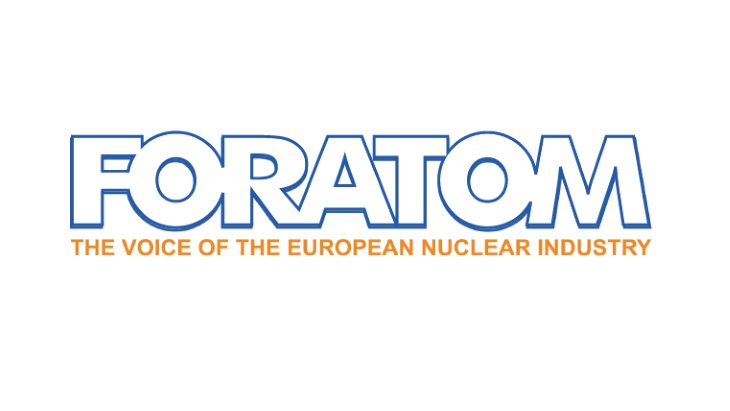Last week, Foratom said it was regrettable that the European Commission had ignored the need for nuclear power as a clean, dispatchable and European source of energy in its green recovery plan from the coronavirus pandemic. The EC's plan - Next Generation EU - aims to boost the EU budget with new financing raised on the financial markets for 2021-2024, and a reinforced long-term budget of the European Union for 2021-2027.
Today's letter reads as follows:
"Today the EU and the world are confronted by an unprecedented health and economic crisis and responding to the COVID-19 pandemic is rightly the immediate priority for everyone. The energy sector across the EU, with nuclear energy at its core, continues to play an important role in that effort - we are reliably maintaining essential power supplies, whilst ensuring the safety of our employees, customers, the public and the environment.
"26% of the electricity produced in the EU comes from nuclear energy and it remains the largest source of low-carbon electricity. However, 50% of the EU’s electricity mix is still based on historic CO2-emitting fossil fuel technologies and these must be replaced by new low-carbon sources as the EU transitions to a carbon neutral economy by 2050. At the same time, additional power capacity will be required to meet growing power demand.
"The investment challenge is huge and the European Commission’s strategic vision (‘A Clean Planet for All’) explicitly recognises that nuclear, together with renewables, will form the backbone of the EU’s carbon-free power sector in 2050. Today’s deployed nuclear technology, coupled with further nuclear technology innovation, research and development (for example, in advanced and small modular reactors) is the perfect complement to renewables to deliver low-carbon electricity - 24 hours a day, 365 days a year. Nuclear can also be a significant contributor to district heating and low-carbon hydrogen production. In addition, it plays an indispensable role in the medical sector - through diagnostic and therapeutic applications, to detecting and curing cancer, nuclear technology supports Europe’s Beating Cancer Plan.
"Member States have been clear that if they are to achieve their climate targets, a technology neutral approach will be essential. For some, any solution that excludes nuclear energy will be more expensive, less effective in delivering carbon reduction and will put at increased risk security of supply and system resilience. EU energy-intensive industries rely on stable, secure and affordable power supply to remain globally competitive and nuclear power is a key enabler.
"With thoughts across the EU turning to economic recovery and the need to rebuild economies after the coronavirus, the commitment to addressing climate change has not wavered and will guide and shape recovery efforts. The energy sector will therefore continue to have a crucial role.
"The European nuclear industry is ready and able to play its part, supporting national and EU clean, green economic revival by continuing to provide:
- growth, jobs (today the nuclear industry maintain 1.1 million direct and indirect jobs) and wealth creation at EU, national and regional level;
- research and innovation;
- export growth potential;
- and progress towards a net zero economy, whilst maintaining full compliance with strict environmental regulations, including those related to nuclear waste.
"The nuclear sector is already an important industrial sector in the EU and is strong across the full nuclear life cycle. There is now a growing awareness across the EU of the importance of preserving and enhancing industrial value chains and reducing over-dependency on third countries. The nuclear sector must therefore be part of the new, coherent EU industrial strategy.
"What does the nuclear sector ask for to deliver our contribution?
- Consistency in policy development and implementation, providing clear signals that facilitate investment and enabling delivery of the required new, low-carbon nuclear power plants (large and small modular reactors), as well as maintaining the existing fleet, and enabling longer-term operation when appropriate;
- A science based environmental assessment that delivers a prompt resolution of the nuclear energy position within the EU Taxonomy. The Technical Expert Group (TEG) recommended further analysis was required by qualified experts with appropriate scientific and technical knowledge. This must take place in 2020 so that important investment is not delayed.






_63865.jpg)
_18570.jpg)
_16159.jpg)





